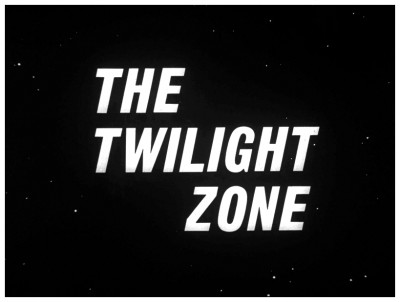 “You’re traveling through another dimension, a dimension not only of sight and sound but of mind. A journey into a wondrous land whose boundaries are that of imagination. Your next stop…The Twilight Zone.”
“You’re traveling through another dimension, a dimension not only of sight and sound but of mind. A journey into a wondrous land whose boundaries are that of imagination. Your next stop…The Twilight Zone.”
#66 TWO – The opening narration tells us the time could be the distant past or the far future. A female soldier, the survivor of an apocalyptic war, stumbles into a deserted war-ravaged town. Searching a derelict restaurant she finds a can of chicken but, before she can open it, a man also wearing a military uniform walks in. Recognising the enemy uniform, she immediately attacks. After all attempts at defending himself fail, the man knocks her out and begins to eat the chicken while the woman lies unconscious on the floor. He examines a calendar with a woman in a swimsuit on the wall, turns to look back at his opponent and realises that his desire for human companionship is stronger than his desire to continue a pointless war. Written & directed by Montgomery Pittman starring Elizabeth Montgomery & Charles Bronson. This episode was actually filmed on the backlot of Hal Roach Studios, which was literally falling apart due to mismanagement and disuse, and was finally torn down soon after.
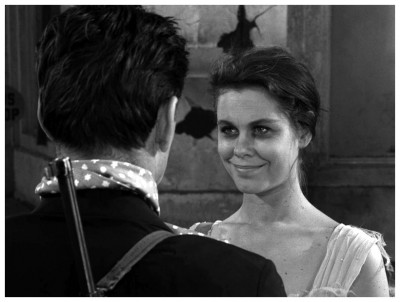 #67 THE ARRIVAL – After flight 107 lands safely with no crew or passengers on board, the FAA sends experienced inspector Grant Sheckly to investigate the matter. He is assisted by airport staff Bengston, Malloy, Robbins and Cousins but, despite their combined efforts, no-one can explain how an empty plane could land safely and taxi to a stop. Robbins mentions the plane’s blue seats, which puzzles Sheckly since he remembers them being brown. Bengston says they were red. When they each see different registration numbers, Sheckly concludes that the plane is not real at all but merely an illusion. Directed by Boris Sagal from a script by Rod Serling starring Harold J. Stone & Fredd Wayne. Variety magazine wrote, “The show now seems to be feeding off itself. Last Friday’s episode – unless it proves to be an exception in the new skein – doesn’t augur well for the future of the series. Twilight Zone seems to be running dry of inspiration.”
#67 THE ARRIVAL – After flight 107 lands safely with no crew or passengers on board, the FAA sends experienced inspector Grant Sheckly to investigate the matter. He is assisted by airport staff Bengston, Malloy, Robbins and Cousins but, despite their combined efforts, no-one can explain how an empty plane could land safely and taxi to a stop. Robbins mentions the plane’s blue seats, which puzzles Sheckly since he remembers them being brown. Bengston says they were red. When they each see different registration numbers, Sheckly concludes that the plane is not real at all but merely an illusion. Directed by Boris Sagal from a script by Rod Serling starring Harold J. Stone & Fredd Wayne. Variety magazine wrote, “The show now seems to be feeding off itself. Last Friday’s episode – unless it proves to be an exception in the new skein – doesn’t augur well for the future of the series. Twilight Zone seems to be running dry of inspiration.”
#68 THE SHELTER – On a typical evening in a typical suburb, Doctor Bill Stockton enjoys a birthday party being thrown for him by his wife Grace and their son Paul. Bill is well-known and liked by this gathering of friends and family, and has repeatedly administered to the health and well-being of each of the guests and their children. Everyone is very friendly and jovial, even when mention is made of Bill’s fallout shelter which he has built in his basement. Suddenly a Civil Defense announcement is made that unidentified objects have been detected heading for the United States. Everybody knows what that means: All-out nuclear war! As panic ensues, the doctor locks himself and his family into his shelter, while his friends become hysterical and demand to be let in. All the previous cordiality is now replaced with soaring desperation, pent-up hostility, searing racism and other suppressed emotions boil to the surface. Directed by Lamont Johnson from a script by Rod Serling starring Larry Gates & Jack Albertson.
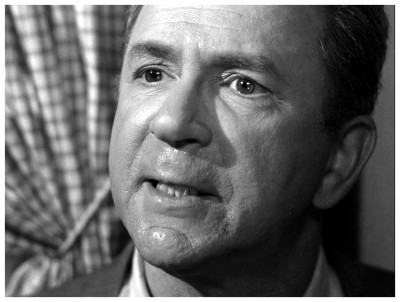 #69 THE PASSERBY – At the end of the Civil War a Confederate Army Sergeant limps down a road with a crutch carrying a bedroll and an old guitar. He spots a once-beautiful house with a yard full of debris, the house of Lavinia Godwin whose husband has gone off to fight in the war. The Sergeant, seeking water and a place to rest, is permitted to refresh himself at the well, and he sings a song that Lavinia recognises as one that her husband used to sing. They talk and watch as soldiers, both Union and Confederate, pass by the house and continue on down the road. The Sergeant learns that Lavinia is very ill and that her husband was killed in the war. The pair then try to interact with the passing soldiers, whose words and behaviour imply that they are more than just wounded men. Directed by Elliot Silverstein from a script by Rod Serling starring James Gregory & Joanne Linville. The traditional folk song Black Is The Colour Of My True Love’s Hair is featured prominently throughout this episode, and elements of this story were re-made in an episode of the 2002 series entitled Homecoming, in which a soldier killed in battle in Iran returns to repair his relationship with his son.
#69 THE PASSERBY – At the end of the Civil War a Confederate Army Sergeant limps down a road with a crutch carrying a bedroll and an old guitar. He spots a once-beautiful house with a yard full of debris, the house of Lavinia Godwin whose husband has gone off to fight in the war. The Sergeant, seeking water and a place to rest, is permitted to refresh himself at the well, and he sings a song that Lavinia recognises as one that her husband used to sing. They talk and watch as soldiers, both Union and Confederate, pass by the house and continue on down the road. The Sergeant learns that Lavinia is very ill and that her husband was killed in the war. The pair then try to interact with the passing soldiers, whose words and behaviour imply that they are more than just wounded men. Directed by Elliot Silverstein from a script by Rod Serling starring James Gregory & Joanne Linville. The traditional folk song Black Is The Colour Of My True Love’s Hair is featured prominently throughout this episode, and elements of this story were re-made in an episode of the 2002 series entitled Homecoming, in which a soldier killed in battle in Iran returns to repair his relationship with his son.
#70 A GAME OF POOL – A frustrated pool champ has beaten everyone. Everyone except one man – the legend, Fats Brown. Brown is dead and the champ can only curse his name. But guess who just walked in? Directed by Buzz Kulik from a script by George Clayton Johnson starring Jack Klugman & Jonathan Winters. Johnson’s script originally featured an alternate ending in which Jesse loses the game. Seeing that Jesse is bedazzled that he has lost a life-or-death game and is still alive, Fats explains that he will die like all second-raters: “You’ll be buried and forgotten without me touching you. If you’d beaten me, you’d have lived forever.” This ending was eventually filmed when the story was remade for the 1989 revival of The Twilight Zone. It also featured a different closing narration: “Lives of great men all remind us we can make our lives sublime and, departing, leave behind us footprints on the sands of time, on the Earth as we know it, and in The Twilight Zone.”
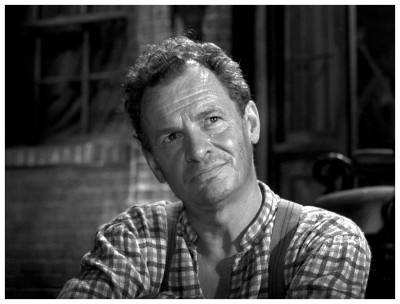 #71 THE MIRROR – A Central American revolutionary comes into the possession of a mirror that shows him his potential assassins. Directed by Don Medford from a script by Rod Serling starring Peter Falk & Antony Carbone. This episode’s main character is based on the real-life Cuban dictator Fidel Castro, who infamously executed ‘Batistianos’ during live television broadcasts shortly after he acquired power in Cuba about a year before this episode originally aired, and the closing titles screen is of the mirror shattered by Clemente’s gun.
#71 THE MIRROR – A Central American revolutionary comes into the possession of a mirror that shows him his potential assassins. Directed by Don Medford from a script by Rod Serling starring Peter Falk & Antony Carbone. This episode’s main character is based on the real-life Cuban dictator Fidel Castro, who infamously executed ‘Batistianos’ during live television broadcasts shortly after he acquired power in Cuba about a year before this episode originally aired, and the closing titles screen is of the mirror shattered by Clemente’s gun.
#72 THE GRAVE – Outlaw Pinto Sykes is ambushed by townspeople in the middle of the street. Soon after, gun-for-hire Conny Miller arrives ready to kill Sykes and collect his pay. He discovers that the men who hired him have already dispatched Sykes themselves. The men dare Miller to make a midnight visit to the grave of Sykes, who vowed with his dying breath to reach up and grab Miller if he ever came near his grave. Miller is told to stick a knife into the burial mound as proof that he visited the grave. Miller treks in the cold windy darkness to the cemetery and, at midnight, kneels at the grave to plant the knife. As he attempts to stand, he is suddenly grabbed by something and falls back down. Written & directed by Montgomery Pittman starring Lee Marvin & Strother Martin.
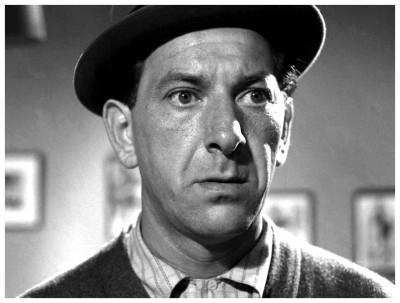 #73 IT’S A GOOD LIFE – On an isolated family farm a young boy named Anthony Freemont, with vast mental powers but lacking emotional development, holds his terrified family in thrall to his every juvenile wish. Directed by James Sheldon from a script by Rod Serling based on a story by Jerome Bixby starring Cloris Leachman & Billy Mumy. Time Magazine named this the third-best Twilight Zone episode ever (after Time Enough At Last and The Monsters Are Due On Maple Street), and TV Guide ranked it at #31 on its Hundred Greatest Episodes Of All-Time list. An updated remake of this episode with a lighter ending written by Richard Matheson and directed by Joe Dante was featured as the third segment of Twilight Zone The Movie (1983) in which Billy Mumy makes a cameo appearance. The 2002 revival series broadcast a sequel entitled It’s Still A Good Life in which Anthony Freemont, now a middle-aged man, has a daughter named Audrey who has inherited his god-like powers – actors Billy Mumy and Cloris Leachman reprise their roles from the original episode, and Mumy’s real-life daughter Liliana Mumy stars as Audrey.
#73 IT’S A GOOD LIFE – On an isolated family farm a young boy named Anthony Freemont, with vast mental powers but lacking emotional development, holds his terrified family in thrall to his every juvenile wish. Directed by James Sheldon from a script by Rod Serling based on a story by Jerome Bixby starring Cloris Leachman & Billy Mumy. Time Magazine named this the third-best Twilight Zone episode ever (after Time Enough At Last and The Monsters Are Due On Maple Street), and TV Guide ranked it at #31 on its Hundred Greatest Episodes Of All-Time list. An updated remake of this episode with a lighter ending written by Richard Matheson and directed by Joe Dante was featured as the third segment of Twilight Zone The Movie (1983) in which Billy Mumy makes a cameo appearance. The 2002 revival series broadcast a sequel entitled It’s Still A Good Life in which Anthony Freemont, now a middle-aged man, has a daughter named Audrey who has inherited his god-like powers – actors Billy Mumy and Cloris Leachman reprise their roles from the original episode, and Mumy’s real-life daughter Liliana Mumy stars as Audrey.
#74 DEATHS-HEAD REVISITED – A former German SS captain returns to Dachau concentration camp and begins reminiscing about the power he enjoyed there, until he finds himself on trial by those who died at his hands. Directed by Don Medford from a script by Rod Serling starring Oscar Beregi Junior & Joseph Schildkraut. Written in response to the then-ongoing Eichmann trial, Deaths-Head Revisited was Serling’s statement on the horrors of the Holocaust, in which a former Nazi on a nostalgic visit to Dachau is haunted and ultimately driven insane by the ghosts of the inmates he had tortured and killed there during the war.
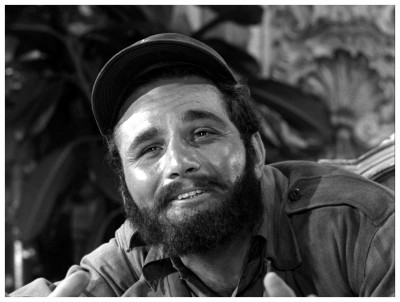 #75 THE MIDNIGHT SUN – When the Earth falls out of orbit, two women try to cope with increasingly oppressive heat in a nearly abandoned city. Directed by Anton Leader from a script by Rod Serling starring Lois Nettleton & Tom Reese. The episode was deliberately shot during summer on a set without air-conditioning, and director Leader actually turned up the heat during certain scenes to create the necessary mood and appearance. The effect of the oil paintings melting was accomplished by painting the pictures in wax on the surface of a hotplate. Serling’s original script featured two characters who did not appear in the finished episode, a policeman and a refrigerator repairman. These roles must have been rather significant because Serling even had them cast before removing them from the script (Ned Glass as the repairman and John McLiam as the policeman). Script editor Del Reisman explained that they were cut due to budget restrictions imposed by CBS CEO James Aubrey: “I spent a lot of time with Buck Houghton trying to reduce scripts, some by Rod, by one speaking part or two speaking parts because we were just about to start shooting the show and we were over budget. And Aubrey was really tough on this subject even if it were a small number of dollars.”
#75 THE MIDNIGHT SUN – When the Earth falls out of orbit, two women try to cope with increasingly oppressive heat in a nearly abandoned city. Directed by Anton Leader from a script by Rod Serling starring Lois Nettleton & Tom Reese. The episode was deliberately shot during summer on a set without air-conditioning, and director Leader actually turned up the heat during certain scenes to create the necessary mood and appearance. The effect of the oil paintings melting was accomplished by painting the pictures in wax on the surface of a hotplate. Serling’s original script featured two characters who did not appear in the finished episode, a policeman and a refrigerator repairman. These roles must have been rather significant because Serling even had them cast before removing them from the script (Ned Glass as the repairman and John McLiam as the policeman). Script editor Del Reisman explained that they were cut due to budget restrictions imposed by CBS CEO James Aubrey: “I spent a lot of time with Buck Houghton trying to reduce scripts, some by Rod, by one speaking part or two speaking parts because we were just about to start shooting the show and we were over budget. And Aubrey was really tough on this subject even if it were a small number of dollars.”
#76 STILL VALLEY – During the American Civil War, Confederate Sergeant Paradine has been assigned to check out the Union army that is marching into the valley below. He hears the army approaching, but suddenly the sound stops. He descends into the valley to find the army there, motionless as if frozen in time. He then meets an old man named Teague, who claims to be a ‘witchman’ and says he used a magic spell to freeze the soldiers. Paradine doesn’t believe him so Teague freezes him too. When Teague lifts the spell, he says that he could stop the entire army this way, ensuring victory for the Confederacy. Paradine asks why he doesn’t, and Teague replies that he is dying. He gives his book of spells to Paradine, encouraging him to use it, but the sergeant soon realises that to use this magic he’d have to align himself with Satan. Directed by James Sheldon from a script by Rod Serling based on a story by Manly Wade Wellman starring Gary Merrill & Vaughn Taylor.
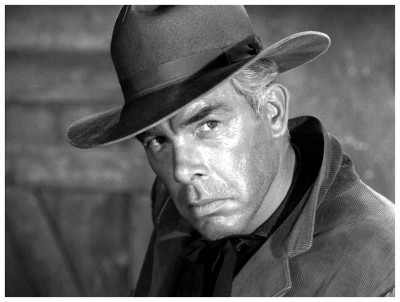 #77 THE JUNGLE – Alan Richards and his wife Doris have recently returned from Africa, where Alan’s company is constructing a dam. He discovers she has secretly kept several charms given to her by a local shaman for protection. He burns them, which upsets her greatly and begs him to stop construction on the dam and, when he opens the door to leave for work, finds a sacrificed goat in the doorway. He attends a meeting to discuss the dam and the fact that, although the natives will benefit from it in the long run, they have no wish to be displaced and the local witch-doctors have threatened to use black magic against anyone associated with the project. Later, while having a drink in a bar, Alan shows a friend the lion-tooth charm his wife has given him, which is supposed to protect him against a lion attack, a laughable idea in a big city. Alan begins to head home, but finds his car won’t start, then tries to return to the bar, but it’s locked and he’s left the lion-tooth charm inside. A nearby pay-phone begins to ring, he answers it and hears nothing but the sounds of the jungle and the roar of a lion. Directed by William F. Claxton from a script by Charles Beaumont starring John Dehner & Walter Brooke.
#77 THE JUNGLE – Alan Richards and his wife Doris have recently returned from Africa, where Alan’s company is constructing a dam. He discovers she has secretly kept several charms given to her by a local shaman for protection. He burns them, which upsets her greatly and begs him to stop construction on the dam and, when he opens the door to leave for work, finds a sacrificed goat in the doorway. He attends a meeting to discuss the dam and the fact that, although the natives will benefit from it in the long run, they have no wish to be displaced and the local witch-doctors have threatened to use black magic against anyone associated with the project. Later, while having a drink in a bar, Alan shows a friend the lion-tooth charm his wife has given him, which is supposed to protect him against a lion attack, a laughable idea in a big city. Alan begins to head home, but finds his car won’t start, then tries to return to the bar, but it’s locked and he’s left the lion-tooth charm inside. A nearby pay-phone begins to ring, he answers it and hears nothing but the sounds of the jungle and the roar of a lion. Directed by William F. Claxton from a script by Charles Beaumont starring John Dehner & Walter Brooke.
#78 ONCE UPON A TIME – Janitor Woodrow Mulligan gets a trip from 1890 to 1962 courtesy of his employer’s time helmet. Directed by Norman Z. McLeod from a script by Richard Matheson starring Buster Keaton & Stanley Adams. This episode was one of several Twilight Zone comedies. The scenes set in 1890 are silent with honky-tonk piano and title-cards (except for Serling’s voiceover). Mulligan shows up in 1962 without his trousers due to being run over by a bicycle, and there’s a running gag that has Mulligan chased by a policeman in both eras. Keaton was one of America’s greatest filmmakers and one of the biggest stars of the silent era, devising elaborate stunts and gags for such classic comedies as The General (1926) and Steamboat Bill Junior (1928). Unfortunately his career suffered with the introduction of sound films and spent many decades struggling to find work in Hollywood. This episode is intended as an homage.
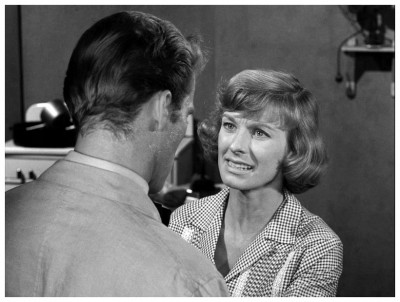 #79 FIVE CHARACTERS IN SEARCH OF AN EXIT – An army major awakens in a round room with no idea of who he is or how he got there. He finds four other people in the same room, and they all begin to question how they each arrived there and. more importantly, how to escape. Directed by Lamont Johnson from a script by Rod Serling based on a story by Marvin Petal starring Susan Harris & William Windom. The title is a variation on the play Six Characters In Search Of An Author by Luigi Pirandello and No Exit by Jean-Paul Sartre. The final shot of the episode, in which the five characters are seen in doll form, does not feature the actors but specially constructed dolls made to resemble the five actors who played the parts, and the little girl seen at the conclusion was played by the daughter of producer Buck Houghton.
#79 FIVE CHARACTERS IN SEARCH OF AN EXIT – An army major awakens in a round room with no idea of who he is or how he got there. He finds four other people in the same room, and they all begin to question how they each arrived there and. more importantly, how to escape. Directed by Lamont Johnson from a script by Rod Serling based on a story by Marvin Petal starring Susan Harris & William Windom. The title is a variation on the play Six Characters In Search Of An Author by Luigi Pirandello and No Exit by Jean-Paul Sartre. The final shot of the episode, in which the five characters are seen in doll form, does not feature the actors but specially constructed dolls made to resemble the five actors who played the parts, and the little girl seen at the conclusion was played by the daughter of producer Buck Houghton.
#80 A QUALITY OF MERCY – Hot-shot new Lieutenant Katell tries to make his mark on the last day of World War Two in the Pacific and gets a unique perspective on his actions. Directed by Buzz Kulik from a script by Rod Serling based on a story by Sam Rolfe starring Dean Stockwell, Albert Salmi, Leonard Nimoy and Michael Pataki. In fact many of the cast went on to appear in science fiction shows: Stockwell starred in both Quantum Leap and the reboot of Battlestar Galactica; Nimoy starred in Star Trek and Mission Impossible; Salmi is well-remembered as the recurring space pirate in Lost In Space; and Pataki has appeared in all the different Star Trek series and more than 150 other television shows. The episode inspired the first segment of Twilight Zone The Movie (1983), in which a modern-day racist (Vic Morrow) is upset after losing a promotion to a Jewish man. After going into a bigoted rant, he’s taken on a nightmare trip through time: He is seen as a Jew during the Holocaust; as a Negro about to be lynched by the Ku Klux Klan; and as a Vietnamese attacked by US soldiers during the Vietnam war. While filming the segment, Morrow and two young child actors were sadly killed when an out-of-control helicopter fell on them. Director John Landis was put on trial for manslaughter but was found Not Guilty on all counts.
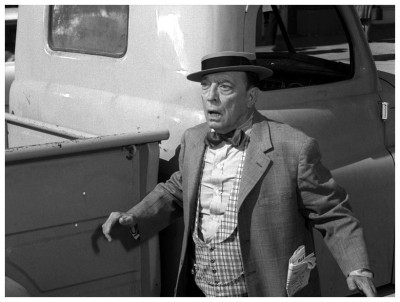 #81 NOTHING IN THE DARK – A lonely old woman, Wanda Dunn, refuses to leave her dark basement apartment because she’s afraid that the angel of Death is waiting for her outside. There is an altercation outside and Wanda peeks out fearfully. A young policeman named Harold has been shot and is lying on the ground outside her door. After much convincing, Wanda finally opens the door and brings him in. They talk about her fear, and she says she has seen Death before in the form of a man who took away the life of a woman by simply touching her. Wanda has been afraid of Death ever since. A building contractor suddenly bursts into the apartment – he’s been hired to demolish the building within the hour. Wanda has been given due notice and ample time to move, and he threatens to have police remove her forcibly. She asks Harold for help, but the contractor can’t see anyone else. Wanda looks in the mirror and, unable to see Harold, comes to the realisation that Harold is in fact Death come to claim her. Directed by Lamont Johnson from a script by George Clayton Johnson starring Gladys Cooper, R.G. Armstrong & Robert Redford.
#81 NOTHING IN THE DARK – A lonely old woman, Wanda Dunn, refuses to leave her dark basement apartment because she’s afraid that the angel of Death is waiting for her outside. There is an altercation outside and Wanda peeks out fearfully. A young policeman named Harold has been shot and is lying on the ground outside her door. After much convincing, Wanda finally opens the door and brings him in. They talk about her fear, and she says she has seen Death before in the form of a man who took away the life of a woman by simply touching her. Wanda has been afraid of Death ever since. A building contractor suddenly bursts into the apartment – he’s been hired to demolish the building within the hour. Wanda has been given due notice and ample time to move, and he threatens to have police remove her forcibly. She asks Harold for help, but the contractor can’t see anyone else. Wanda looks in the mirror and, unable to see Harold, comes to the realisation that Harold is in fact Death come to claim her. Directed by Lamont Johnson from a script by George Clayton Johnson starring Gladys Cooper, R.G. Armstrong & Robert Redford.
#82 ONE MORE PALLBEARER – Millionaire Paul Radin invites three people to join him in his bomb shelter: Mrs. Langford, a high-school teacher who once failed him; Colonel Hawthorne, who had him court-martialled; and Reverend Hughes, who revealed a scandal involving a woman driven to suicide by Radin. With the aid of sound effects and fake radio messages, Radin convinces the trio that an apocalyptic nuclear war will occur within minutes. He offers them refuge in the shelter if they do one thing – apologise for their actions. They all refuse, valuing honour over life, and leave the shelter. Suddenly, the sound of a bomb detonation shakes Radin’s shelter. He takes the elevator to the surface and sees that a nuclear war really has occurred and the world is in ruins. This twist ending is given another twist however, when we learn that Radin, devastated by his failure, has lost his mind and is only imagining that the world has been destroyed. Radin sobs helplessly at the foot of a fountain outside his intact building. Directed by Lamont Johnson from a script by Rod Serling starring Joseph Wiseman & Katherine Squire.
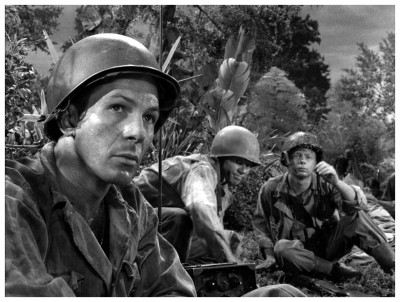 #83 DEAD MAN’S SHOES – Homeless man Nate Bledsoe steals a pair of shoes from the body of a man killed by gangsters. Wearing the shoes infuses him with the personality and memories of the previous owner, and continues his life as the dead man. He visits the victim’s girlfriend, who recognises his kiss and other mannerisms. He then goes to a bar to confront Dagget, the gangster who had him killed. Dagget guns him down but, before he dies, Nate promises to return until he kills Dagget: “I’ll be back Bernie, and I’ll keep coming back – again and again.” The body (including shoes) is dumped, and another derelict man finds the body and steals the shoes. Directed by Montgomery Pittman from a script by Charles Beaumont starring Warren Stevens & Richard Devon. Inspired by the Curt Siodmak novel Donovan’s Brain (1942), the initial item of clothing was to be a hat, but it was felt that shoes would be better symbolically – shoes can take you places. The story was remade for the eighties revival series as Dead Woman’s Shoes, and in the second revival series as Dead Man’s Eyes.
#83 DEAD MAN’S SHOES – Homeless man Nate Bledsoe steals a pair of shoes from the body of a man killed by gangsters. Wearing the shoes infuses him with the personality and memories of the previous owner, and continues his life as the dead man. He visits the victim’s girlfriend, who recognises his kiss and other mannerisms. He then goes to a bar to confront Dagget, the gangster who had him killed. Dagget guns him down but, before he dies, Nate promises to return until he kills Dagget: “I’ll be back Bernie, and I’ll keep coming back – again and again.” The body (including shoes) is dumped, and another derelict man finds the body and steals the shoes. Directed by Montgomery Pittman from a script by Charles Beaumont starring Warren Stevens & Richard Devon. Inspired by the Curt Siodmak novel Donovan’s Brain (1942), the initial item of clothing was to be a hat, but it was felt that shoes would be better symbolically – shoes can take you places. The story was remade for the eighties revival series as Dead Woman’s Shoes, and in the second revival series as Dead Man’s Eyes.
#84 THE HUNT – Hyder Simpson’s wife has seen some bad omens recently, and warns her husband not to go raccoon hunting that night. Despite her warnings he goes hunting anyway and, when his dog Rip dives into a pond after a raccoon, Hyder jumps in after him, but only the raccoon comes up out of the water. Hyder and Rip wake up next to the pond and return home, but neither his wife, the preacher, nor his neighbours can see him – it seems that he and Rip are dead. Walking along a road they come to a gate tended by a man. The gatekeeper explains that Hyder can enter the Elysian Fields, but there is no raccoon hunting and no dogs allowed. Hyder declines angrily – “Any place that’s too high-falutin’ for Rip is too fancy for me!” – and continues to walk along ‘Eternity Road’. Later, after stopping for a rest, Hyder and Rip are met by a young angel whose job is to take them both to Heaven. Directed by Harold D. Schuster from a script by Earl Hamner Junior starring Arthur Hunnicutt & Jeanette Nolan.
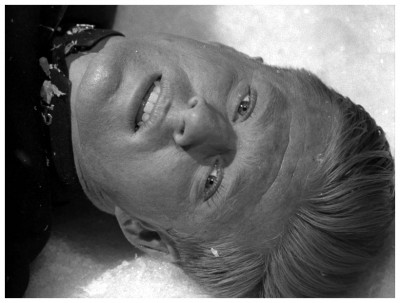 #85 SHOWDOWN WITH RANCE McGREW – Television cowboy star Rance McGrew is ready to film a scene in which Jesse James shoots him in the back, when he suddenly finds himself in the actual Old West. The real Jesse James appears and explains that he, Billy The Kid and other famous outlaws are displeased with the way that they are portrayed on television. James then challenges McGrew to a showdown, who attempts to flee, but James corners him. McGrew drops to his knees pleading, saying he will do anything if James will only spare him. James accepts: “We may be stiffs up there, but we’re sensitive.” McGrew finds himself back on the film set and meets his new agent, none other than Jesse James himself, wearing a beret and a loud shirt. He’s come to ensure that outlaws get their due, starting with McGrew being thrown out a saloon window. Directed by Christian Nyby from a script by Rod Serling based on a story by Frederick Louis Fox starring Larry Blyden & Robert Cornthwaite.
#85 SHOWDOWN WITH RANCE McGREW – Television cowboy star Rance McGrew is ready to film a scene in which Jesse James shoots him in the back, when he suddenly finds himself in the actual Old West. The real Jesse James appears and explains that he, Billy The Kid and other famous outlaws are displeased with the way that they are portrayed on television. James then challenges McGrew to a showdown, who attempts to flee, but James corners him. McGrew drops to his knees pleading, saying he will do anything if James will only spare him. James accepts: “We may be stiffs up there, but we’re sensitive.” McGrew finds himself back on the film set and meets his new agent, none other than Jesse James himself, wearing a beret and a loud shirt. He’s come to ensure that outlaws get their due, starting with McGrew being thrown out a saloon window. Directed by Christian Nyby from a script by Rod Serling based on a story by Frederick Louis Fox starring Larry Blyden & Robert Cornthwaite.
#86 KICK THE CAN – Charles Whitley, a retiree at Sunnyvale Rest Home, has discovered the secret of youth. He is convinced that if he thinks young, he will become young but his best friend, Ben Conroy, thinks he’s crazy. One night Charles convinces a number of residents to play a game of Kick The Can with him. He tries to talk Ben into playing, but Ben refuses. The game transforms Charles and his friends into children, and when Ben goes out to the street he finds a group of children playing Kick The Can. The superintendent chases the children away except for one, who stops to look at Ben. Now seeing the miracle, Ben begs for a second chance to go with his friend, but it’s too late. The superintendent starts to search for the missing residents, but Ben knows they won’t be found. Directed by Lamont Johnson from a script by George Clayton Johnson starring Ernest Truex & Russell Collins.
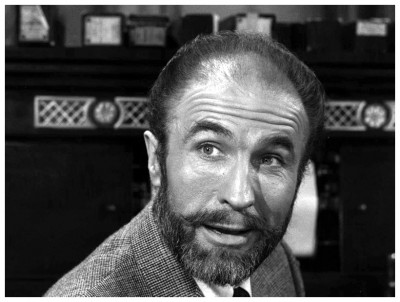 #87 A PIANO IN THE HOUSE – Drama critic Fitzgerald Fortune decides to buy his young wife Esther a player piano as a birthday present. As the tough-as-nails store owner plays the piano, he reveals his soft sentimental side to Fortune, who notices that the piano’s music somehow reveals people’s true feelings. Later at home, his solemn butler bursts out laughing under the influence of the piano, and when Fortune plays a roll for his wife she confesses that she detests him for his cruelty to her and the people around him. He then tries it out on one of his wife’s party guests, a playwright named Walker, who admits to being in love with Esther and that they had a tryst while she was on vacation. Fortune chooses another guest, a heavy-set woman, who admits to really wanting to be a ballet dancer, light, graceful and ethereal as a snowflake. The others laugh at her and, when the music stops, she is embarrassed. Fortune then announces he is going to reveal the devil himself and inserts a new roll into the piano, but Esther swaps it for a different one. When the music plays – a lullaby – Fortune reveals himself to be nothing more than a frightened and sadistic child who is jealous of others around him. Directed by David Greene from a script by Earl Hamner Junior starring Barry Morse & Joan Hackett.
#87 A PIANO IN THE HOUSE – Drama critic Fitzgerald Fortune decides to buy his young wife Esther a player piano as a birthday present. As the tough-as-nails store owner plays the piano, he reveals his soft sentimental side to Fortune, who notices that the piano’s music somehow reveals people’s true feelings. Later at home, his solemn butler bursts out laughing under the influence of the piano, and when Fortune plays a roll for his wife she confesses that she detests him for his cruelty to her and the people around him. He then tries it out on one of his wife’s party guests, a playwright named Walker, who admits to being in love with Esther and that they had a tryst while she was on vacation. Fortune chooses another guest, a heavy-set woman, who admits to really wanting to be a ballet dancer, light, graceful and ethereal as a snowflake. The others laugh at her and, when the music stops, she is embarrassed. Fortune then announces he is going to reveal the devil himself and inserts a new roll into the piano, but Esther swaps it for a different one. When the music plays – a lullaby – Fortune reveals himself to be nothing more than a frightened and sadistic child who is jealous of others around him. Directed by David Greene from a script by Earl Hamner Junior starring Barry Morse & Joan Hackett.
#88 THE LAST RITES OF JEFF MYRTLEBANK – During the mid-twenties in a small rural town, a man named Jeff Myrtlebank returns to life at his own funeral. The townspeople believe he’s possessed by a demon, even though the town doctor declares it was due to a medical condition that imitates death. Jeff seems normal enough, yet he has changed – he’s suddenly become a hard worker with exceptional strength and wants to marry his longtime girlfriend named Comfort. Just as Comfort is about to respond to Jeff’s proposal, a truckload of angry townspeople arrives to take on the demon they believe that Jeff is possessed by. Jeff makes an inspired speech in which he tells them that they are wrong and have nothing to fear, and points out that if he really was a demon, they had better be nice to him. They agree to this and leave, as Jeff pulls out his pipe and magically ignites a match. When Comfort asks how he lit the match, he laughs: “Comfort, you have got to stop imagining things.” Written & directed by Montgomery Pittman starring James Best & Edgar Buchanan.
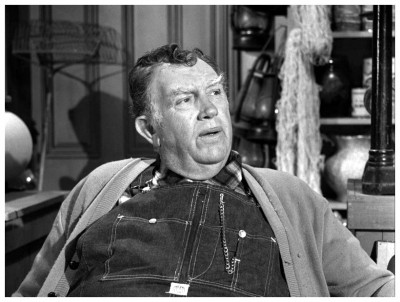 #89 TO SERVE MAN – An alien race comes to earth promising peace and sharing technology. A linguist and his team set out to translate the alien language using a book entitled ‘To Serve Man’. Directed by Richard L. Bare from a script by Rod Serling based on a story by Damon Knight starring Lloyd Bochner & Richard Kiel. The lower portion of the Kanamit spaceship with the retractable stairway is the space cruiser C-57-D from Forbidden Planet (1956). The same set-piece is also seen in Third From The Sun, The Monsters Are Due On Maple Street, Hocus-Pocus And Frisby, The Invaders and Death Ship. Footage from The Day The Earth Stood Still (1951) is used for the arrival of the Kanamit spaceship, while footage from Earth Versus The Flying Saucers (1956) is used for the spaceship as it leaves. The episode has been referenced many times in popular culture, in movies like The Naked Gun II The Smell Of Fear (1991), The Lion King III Hakuna Matata (2004) and Madagascar (2005), and in television shows like Angel, Futurama, Millennium, News Radio, Supernatural and Grimm. The second segment of The Simpsons‘ very first Treehouse Of Horror was a parody entitled Hungry Are The Damned.
#89 TO SERVE MAN – An alien race comes to earth promising peace and sharing technology. A linguist and his team set out to translate the alien language using a book entitled ‘To Serve Man’. Directed by Richard L. Bare from a script by Rod Serling based on a story by Damon Knight starring Lloyd Bochner & Richard Kiel. The lower portion of the Kanamit spaceship with the retractable stairway is the space cruiser C-57-D from Forbidden Planet (1956). The same set-piece is also seen in Third From The Sun, The Monsters Are Due On Maple Street, Hocus-Pocus And Frisby, The Invaders and Death Ship. Footage from The Day The Earth Stood Still (1951) is used for the arrival of the Kanamit spaceship, while footage from Earth Versus The Flying Saucers (1956) is used for the spaceship as it leaves. The episode has been referenced many times in popular culture, in movies like The Naked Gun II The Smell Of Fear (1991), The Lion King III Hakuna Matata (2004) and Madagascar (2005), and in television shows like Angel, Futurama, Millennium, News Radio, Supernatural and Grimm. The second segment of The Simpsons‘ very first Treehouse Of Horror was a parody entitled Hungry Are The Damned.
#90 THE FUGITIVE – Little Jenny wears a brace on her leg, but her best friend, an elderly man named Old Ben, brightens her life by performing magic – he can turn into anything he wants. One day, two men-in-black arrive looking for Old Ben, who evades them and later confesses to Jenny that he’s actually a fugitive from another planet, but he’s not a criminal. Directed by Richard L. Bare from a script by Charles Beaumont starring Susan Gordon & J. Pat O’Malley. At the end of the episode, host Serling holds up an eight-by-ten photograph of a handsome young man, saying that the photo shows Old Ben’s true appearance and that when Jenny grows up, she will become his queen. There has been much speculation about the identity of the uncredited man in the photo. Susan Gordon is the actress daughter of genre director Bert I. Gordon, and the alien costume seen is a leftover from the American International Pictures film The She Creature (1956).
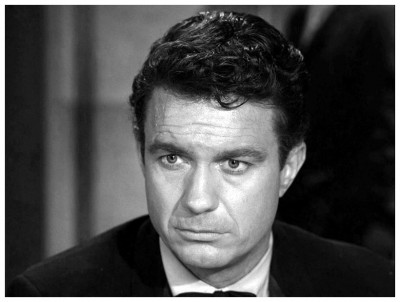 #91 LITTLE GIRL LOST – Woken in the middle of the night by the cries of his daughter, a father enters the girl’s room to find that she has vanished – even though he can still her crying out for help. Directed by Paul Stewart from a script by Richard Matheson starring Sarah Marshall & Charles Aidman. Matheson wrote the short story based on a real-life incident involving his own young daughter, who fell off her bed while asleep and rolled against a wall. Despite hearing her daughter’s cries for help, Matheson’s wife was initially unable to find her daughter. Little Tina’s voice is that of actress Rhoda Williams, who was thirty-two years old at the time of filming, and the hole into the other dimension is an example of a ‘Riemannian Cut’ which is a type of wormhole formed by two spaces being joined at the same set of points. Bernard Herrmann‘s haunting score for this episode was written for an unusual ensemble of four flutes, four harps, percussion (tambourine, tam-tams and vibraphone) and a viola d’amore.
#91 LITTLE GIRL LOST – Woken in the middle of the night by the cries of his daughter, a father enters the girl’s room to find that she has vanished – even though he can still her crying out for help. Directed by Paul Stewart from a script by Richard Matheson starring Sarah Marshall & Charles Aidman. Matheson wrote the short story based on a real-life incident involving his own young daughter, who fell off her bed while asleep and rolled against a wall. Despite hearing her daughter’s cries for help, Matheson’s wife was initially unable to find her daughter. Little Tina’s voice is that of actress Rhoda Williams, who was thirty-two years old at the time of filming, and the hole into the other dimension is an example of a ‘Riemannian Cut’ which is a type of wormhole formed by two spaces being joined at the same set of points. Bernard Herrmann‘s haunting score for this episode was written for an unusual ensemble of four flutes, four harps, percussion (tambourine, tam-tams and vibraphone) and a viola d’amore.
#92 PERSON OR PERSONS UNKNOWN – David Gurney wakes up to find that nobody knows him, and all evidence of his identity had disappeared. He is placed in an insane asylum, however he manages to escape after a doctor named Koslenko tries to tell him that David Gurney doesn’t exist, but Gurney insists that someone or something wants to block him out. He finds a photo of himself and his wife together but, when the police arrive with a psychiatrist, the picture somehow changes and portrays Gurney alone. He throws himself to the ground and wakes up in his bed – the whole adventure was just a bad dream. His wife gets up from the bed and talks to him from the bathroom, where she removes the cold-cream from her face. When she emerges, Gurney is horrified to discover that his wife looks nothing like the wife he remembers. Directed by John Brahm from a script by Charles Beaumont starring Richard Long & Frank Silvera.
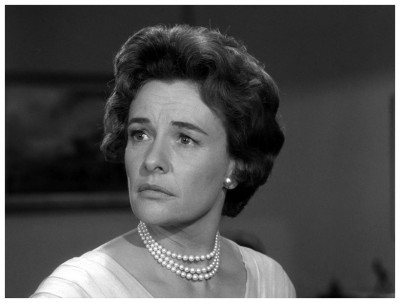 #93 THE LITTLE PEOPLE – On a desolate planet, two astronauts discover an entire society populated by beings a tiny fraction of their size, smaller than ants, with high-pitched chattering voices due to their size. One of the astronauts decides to rule over the alien society as a god. Directed by William F. Claxton from a script by Rod Serling starring Claude Akins & Joe Maross. The weapons and uniforms are leftovers from Forbidden Planet (1956), and this episode has been referenced many times in popular culture, including The Outer Limits story Wolf 359, the Futurama episode Godfellas, The Simpsons Treehouse Of Horror VII segment The Genesis Tub, and in the South Park episode The Simpsons Already Did It.
#93 THE LITTLE PEOPLE – On a desolate planet, two astronauts discover an entire society populated by beings a tiny fraction of their size, smaller than ants, with high-pitched chattering voices due to their size. One of the astronauts decides to rule over the alien society as a god. Directed by William F. Claxton from a script by Rod Serling starring Claude Akins & Joe Maross. The weapons and uniforms are leftovers from Forbidden Planet (1956), and this episode has been referenced many times in popular culture, including The Outer Limits story Wolf 359, the Futurama episode Godfellas, The Simpsons Treehouse Of Horror VII segment The Genesis Tub, and in the South Park episode The Simpsons Already Did It.
#94 FOUR O’CLOCK – Oliver Crangle is a fanatic who maintains records of people he deems evil, contacting their employers to alert them of their evil acts, demanding their immediate firing and threatening to involve higher authorities if they don’t comply. Unsatisfied with making anonymous threats, he searches for a more effective way to eliminate all evil from the world, and plans to shrink all evil people to two feet tall and cackles at the idea. His activities attract the attention of the government and Agent Hall is sent to investigate. Crangle tells him that he has finally devised a way to shrink every evil person down to knee-high at exactly 4pm that afternoon through sheer concentration and will power. Hall dismisses him as a loony and leaves. When 4pm rolls around, Crangle is dismayed to find that he himself has been shrunk. Directed by Lamont Johnson from a script by Rod Serling based on a story by Price Day starring Theodore Bikel & Phyllis Love.
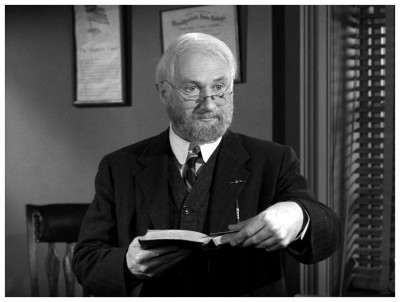 #95 HOCUS-POCUS AND FRISBY – Somerset Frisby runs a general store in a small town and all the locals know him well for the tall tales he tells concerning his experiences – war hero; presidential advisor; super-genius – all of which he fabricates. His friends gather in the store to hear him play his harmonica and spin his stories, which they find very entertaining. One evening near closing time, aliens from another planet disguised as humans lure him into their spaceship and abduct him. They want Frisby for their collection of specimens from other planets. The aliens accept his tales at face value, so Frisby appears to them to have the widest range of experience and best education amongst humans, which is why they want him as the outstanding example of his race. Ignoring his pleas for release, the aliens insist that Frisby accompany them to their planet. Directed by Lamont Johnson from a script by Rod Serling based on a story by Frederick Louis Fox starring Andy Devine & Milton Selzer.
#95 HOCUS-POCUS AND FRISBY – Somerset Frisby runs a general store in a small town and all the locals know him well for the tall tales he tells concerning his experiences – war hero; presidential advisor; super-genius – all of which he fabricates. His friends gather in the store to hear him play his harmonica and spin his stories, which they find very entertaining. One evening near closing time, aliens from another planet disguised as humans lure him into their spaceship and abduct him. They want Frisby for their collection of specimens from other planets. The aliens accept his tales at face value, so Frisby appears to them to have the widest range of experience and best education amongst humans, which is why they want him as the outstanding example of his race. Ignoring his pleas for release, the aliens insist that Frisby accompany them to their planet. Directed by Lamont Johnson from a script by Rod Serling based on a story by Frederick Louis Fox starring Andy Devine & Milton Selzer.
#96 THE TRADE-INS – An elderly couple named John and Marie Holt realise they haven’t got much time left, so they visit a medical centre specialising in body swapping. The centre representative tells them the company offers a guarantee if they change their minds, as the procedure can be reversed. The couple decide to trade-in their aged bodies for younger models, but the swap will cost $5,000 each and they have only $5,000. John has himself changed, intending to use his young body to earn the money for Marie’s change, but they soon realise they can’t wait the necessary time for young John to earn the money for Marie’s procedure and would rather grow old together. He opts for the guarantee and is given his old body back, and the Holts depart together towards an uncertain future. Directed by Elliot Silverstein from a script by Rod Serling starring Joseph Schildkraut & Noah Keen.
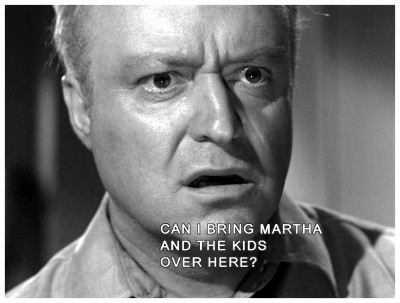 #97 THE GIFT – A humanoid alien crash-lands near the Texas/Mexico border. He kills one policeman and wounds another, then finds a village hotel and collapses, but a sympathetic doctor operates to remove the bullets from his chest. The alien (who calls himself Mr. Williams) befriends an orphan boy named Pedro and gives him a gift, saying he will explain later. Williams attempts to escape back to his ship, but soldiers corner him. He explains that he has come in peace and that the policeman’s death was an accident. He tells Pedro to show the gift to the doctor but the villagers take the gift and set it on fire, claiming that it must be evil, and shoot Williams dead. The doctor picks up the remains of the gift from the fire and reads the message on it: “Greetings to the people of Earth. We come in peace. We bring you this gift. The following chemical formula is a vaccine against all forms of cancer…” but the rest has burned away. Directed by Allen H. Miner from a script by Rod Serling starring Geoffrey Horne & Nico Minardos.
#97 THE GIFT – A humanoid alien crash-lands near the Texas/Mexico border. He kills one policeman and wounds another, then finds a village hotel and collapses, but a sympathetic doctor operates to remove the bullets from his chest. The alien (who calls himself Mr. Williams) befriends an orphan boy named Pedro and gives him a gift, saying he will explain later. Williams attempts to escape back to his ship, but soldiers corner him. He explains that he has come in peace and that the policeman’s death was an accident. He tells Pedro to show the gift to the doctor but the villagers take the gift and set it on fire, claiming that it must be evil, and shoot Williams dead. The doctor picks up the remains of the gift from the fire and reads the message on it: “Greetings to the people of Earth. We come in peace. We bring you this gift. The following chemical formula is a vaccine against all forms of cancer…” but the rest has burned away. Directed by Allen H. Miner from a script by Rod Serling starring Geoffrey Horne & Nico Minardos.
#98 THE DUMMY – Ventriloquist Jerry Etherson is convinced that his dummy Willie is alive and quite evil. He locks Willie in a trunk and makes plans for a new act with a new dummy. Too bad he didn’t clear those plans with Willie first. Directed by Abner Biberman from a script by Rod Serling based on a story by Lee Polk starring Cliff Robertson & Frank Sutton. The same dummy was used in the 1964 episode Caesar And Me, and became part of a private collection in Connecticut during the seventies. It now resides in David Copperfield‘s International Museum And Library Of The Conjuring Arts in Las Vegas. Both The Dummy and Caesar And Me are well-regarded entries in the sub-genre concerning haunted ventriloquists, which includes The Great Gabbo starring Erich Von Stroheim, Dead Of Night (1945) starring Michael Redgrave, and Magic starring Anthony Hopkins.
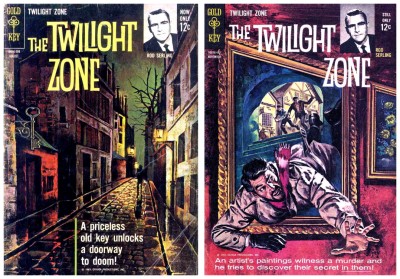 #99 YOUNG MAN’S FANCY – A newly married couple return to the husband’s late mother’s home where he grew up. The plan is to sell the house, but he finds it very difficult to leave, let alone sell it. In the house, his new wife is bothered by constant reminders that the mother is somehow present in the house and vying for her son’s loyalty. Eventually the man becomes so engrossed in childhood memories that his mother reappears and he becomes a child again. His wife accuses the mother of causing this, but the mother says it was not her doing. The husband – now a young boy – tells his wife to go away. The horror-struck wife flees the house, leaving her boy-husband and his spectral mother behind. Directed by John Brahm from a script by Richard Matheson starring Phyllis Thaxter & Alex Nicol.
#99 YOUNG MAN’S FANCY – A newly married couple return to the husband’s late mother’s home where he grew up. The plan is to sell the house, but he finds it very difficult to leave, let alone sell it. In the house, his new wife is bothered by constant reminders that the mother is somehow present in the house and vying for her son’s loyalty. Eventually the man becomes so engrossed in childhood memories that his mother reappears and he becomes a child again. His wife accuses the mother of causing this, but the mother says it was not her doing. The husband – now a young boy – tells his wife to go away. The horror-struck wife flees the house, leaving her boy-husband and his spectral mother behind. Directed by John Brahm from a script by Richard Matheson starring Phyllis Thaxter & Alex Nicol.
#100 I SING THE BODY ELECTRIC – A recent widower needing loving care for his three young children purchases a cybernetic ‘grandmother’. While two of the children accept her, one of his daughters fiercely rejects the robot, with near tragic consequences. Directed by William F. Claxton & James Sheldon from a script by Ray Bradbury starring Josephine Hutchinson & Veronica Cartwright. The hundredth episode was poorly received by viewers and is frequently mentioned as one of the corniest stories in the series. The script, named after a phrase in a Walt Whitman poem, was written by Bradbury who adapted it into a short story published in 1969. Although Bradbury contributed several scripts to The Twilight Zone, this was the only one ever produced. Serling’s narration is notable because, in addition to opening and closing the show as normal, it also appears in the middle of the story to describe how the children spent years happily with their android grandmother and eventually grow up. Other episodes to feature mid-show narrations are all from season one: Walking Distance, Time Enough At Last and I Shot An Arrow Into The Air.
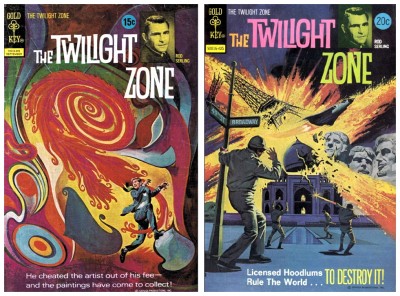 #101 CAVENDER IS COMING – Inept guardian angel Harmon Cavender is given a chance to earn his wings by helping an unconventional big-city woman, the young and awkward Agnes Grep. Directed by Christian Nyby from a script by Rod Serling starring Carol Burnett & Jesse White. This episode was originally broadcast with a laugh track – the only Twilight Zone episode to feature one – because this episode was intended as a pilot for a regular situation comedy called Cavender Is Coming. The essential premise of this episode is exactly the same as the season one episode Mr. Bevis: Both were comedies written by Serling about well-meaning guardian angels who try to help kind-hearted but hapless humans by magically giving them everything they desire, only to discover they were happier with their previous lives.
#101 CAVENDER IS COMING – Inept guardian angel Harmon Cavender is given a chance to earn his wings by helping an unconventional big-city woman, the young and awkward Agnes Grep. Directed by Christian Nyby from a script by Rod Serling starring Carol Burnett & Jesse White. This episode was originally broadcast with a laugh track – the only Twilight Zone episode to feature one – because this episode was intended as a pilot for a regular situation comedy called Cavender Is Coming. The essential premise of this episode is exactly the same as the season one episode Mr. Bevis: Both were comedies written by Serling about well-meaning guardian angels who try to help kind-hearted but hapless humans by magically giving them everything they desire, only to discover they were happier with their previous lives.
#102 THE CHANGING OF THE GUARD – After being forced to retire from teaching, Professor Fowler contemplates suicide because he feels he hasn’t made a difference in the world. That night he has an experience that shows him that he is totally wrong. Directed by Robert Ellis Miller from a script by Rod Serling starring Donald Pleasance & Liam Sullivan. For his first appearance on American television, Pleasance wore heavy makeup in order to appear much older than his actual age of forty-two. The quote Professor Fowler reads (“Be ashamed to die until you have won some victory for humanity.”) is the motto of Serling’s alma mater Antioch College. Believing The Twilight Zone was cancelled, Serling accepted a teaching post there after completing this very script. This is also the final episode to end with the camera panning up to the stars.
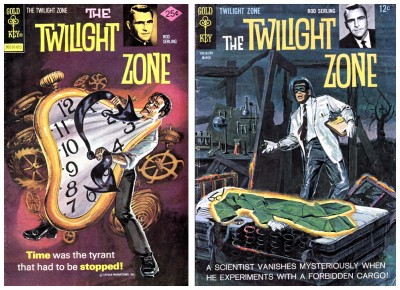 Thanks to Wikipedia for certain information, and a big thanks to Marc Scott Zicree, author of the definitive tome The Twilight Zone Companion, one of the first (and still one of the best) television episode guide books ever to be published. If you have any interest in the early formative days of American television, Mr. Zicree’s volume should definitely be at the top of your list. Please join me next week so I can poke you in the mind’s eye with another frightful excursion to the backside of Hollywood, filmed in glorious 2-D black & white Regularscope for…Horror News. Toodles!
Thanks to Wikipedia for certain information, and a big thanks to Marc Scott Zicree, author of the definitive tome The Twilight Zone Companion, one of the first (and still one of the best) television episode guide books ever to be published. If you have any interest in the early formative days of American television, Mr. Zicree’s volume should definitely be at the top of your list. Please join me next week so I can poke you in the mind’s eye with another frightful excursion to the backside of Hollywood, filmed in glorious 2-D black & white Regularscope for…Horror News. Toodles!
 Horror News | HNN Official Site | Horror Movies,Trailers, Reviews
Horror News | HNN Official Site | Horror Movies,Trailers, Reviews
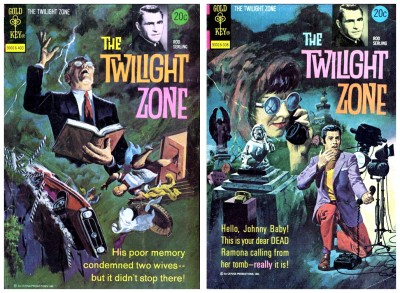
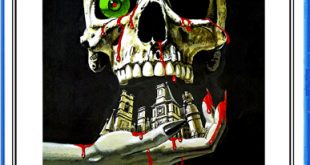
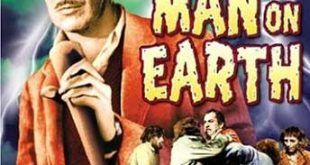

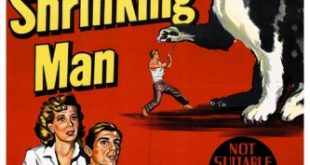
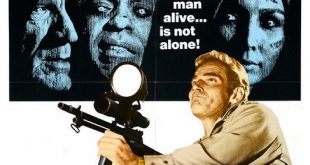
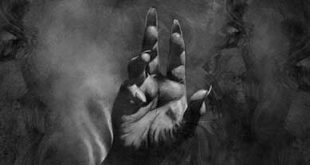
I’m amazed, I must say. Seldom do I encounter a blog that’s
equally educative and amusing, and without a doubt, you’ve hit the nail on the head. The problem is something that too few folks are speaking intelligently about. I’m very happy that
I found this during my hunt for something regarding this.
Thank you for reading, and a million thanks for the very kind words! The Twilight Zone has always been a favourite, the best TV show ever in my opinion.